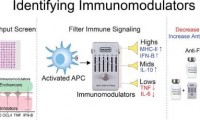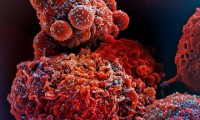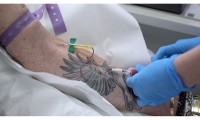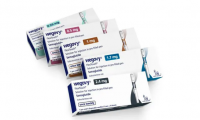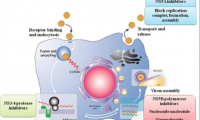-
GSK will have to pay additional royalties to AstraZeneca on cancer drug Zejula
- Source: drugdu
- 449
- April 6, 2023
-
Immunomodulators boost vaccine response and reduce inflammation, finds study
- Source: drugdu
- 499
- April 6, 2023
-
Scientists develop fastest calcium indicators yet for neural imaging
- Source: drugdu
- 434
- April 6, 2023
-
SARS-CoV-2 infection weakens immune-cell response to vaccination
- Source: drugdu
- 335
- April 6, 2023
-
One in six people worldwide affected by infertility, WHO reports
- Source: drugdu
- 393
- April 6, 2023
-
Blood tests may spare cancer patients chemo
- Source: drugdu
- 320
- April 6, 2023
-
WHO considers adding obesity drugs on its ‘essential medicines’ list
- Source: drugdu
- 370
- April 6, 2023
-
maker of Wegovy ‘skinny jab’ is funding NHS weight-loss services
- Source: drugdu
- 566
- April 4, 2023
-
A Testosterone Patch Is Being Developed For Menopausal Women—And It Could Be A World First
- Source: drugdu
- 529
- April 4, 2023
-
Direct Acting Antiviral Drugs For The Treatment Of Hepatitis C
- Source: drugdu
- 566
- April 4, 2023
your submission has already been received.
OK
Subscribe
Please enter a valid Email address!
Submit
The most relevant industry news & insight will be sent to you every two weeks.






